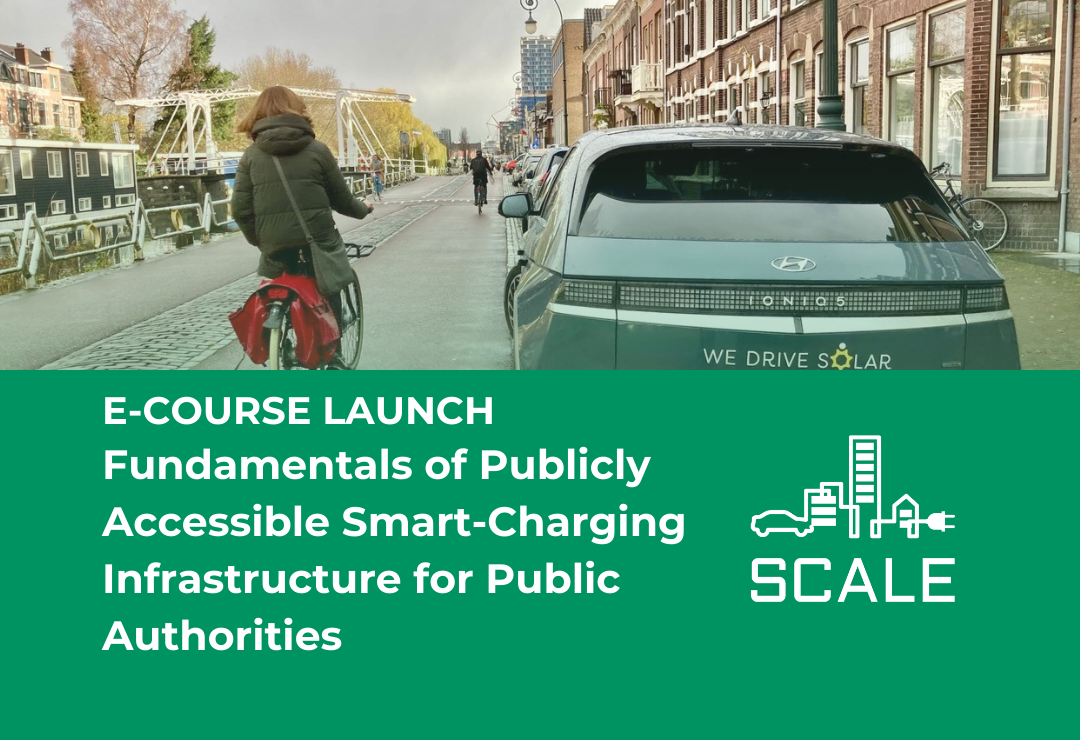SCALE launches an e-course for public authorities on smart charging
SCALE is launching a three-module e-course designed specifically for public authorities.
This comprehensive course, coordinated by Rupprecht Consult, will equip participants with a solid understanding of the essential concepts, cutting-edge technologies, and strategic approaches needed to implement efficient and sustainable smart charging infrastructure in cities and regions.
Starting strong with a kickoff webinar
In the kick-off webinar will start with a brief introduction to the SCALE Project, followed by an introduction to the e-course and its relevance for public authorities in building knowledge on smart charging. Next, they will provide an overview of the course content and its various units, along with detailed instructions on how to get the most out of the course and meet the certification requirements by participating in discussion forums and completing short assignments. Lastly, they will offer a step-by-step registration guide for those who have not yet registered.
The e-course kick-off webinar is on 12 November (12:30 to 13:30):
Moreover, you can already register for the e-course, too.
E-Course Fundamentals
What will you learn from the course?
The e-course is designed for public authorities working on public charging infrastructure. It will cover:
- The basics of smart charging and V2G and V2X concepts and their benefits for cities and municipalities;
- The role of EV users in the roll-out of future-proofed charging infrastructure, which users rely on public charging, how they can help cities roll out public charging, and other behavioural factors;
- The EU policy landscape on EVs, smart charging and V2G and what AFIR means to publicly accessible smart charging infrastructure;
- A breakdown of the value chain, related stakeholders and the services that are in play within smart charging and V2G ecosystem;
- New energy and mobility services at a glance from different stakeholders’ point of view;
- Types of smart charging and V2G infrastructure and their main differences and advantages;
- The link between shared mobility and V2G: opportunities, role of cities and best practices;
- Approaches to planning and designing smart charging infrastructure and asses charging; infrastructure needs;
- Procurement models of charging infrastructure and future-proofing, charging location planning and joint procurement opportunities;
- Funding charging infrastructure such as ownership, budget planning and funding channels.


